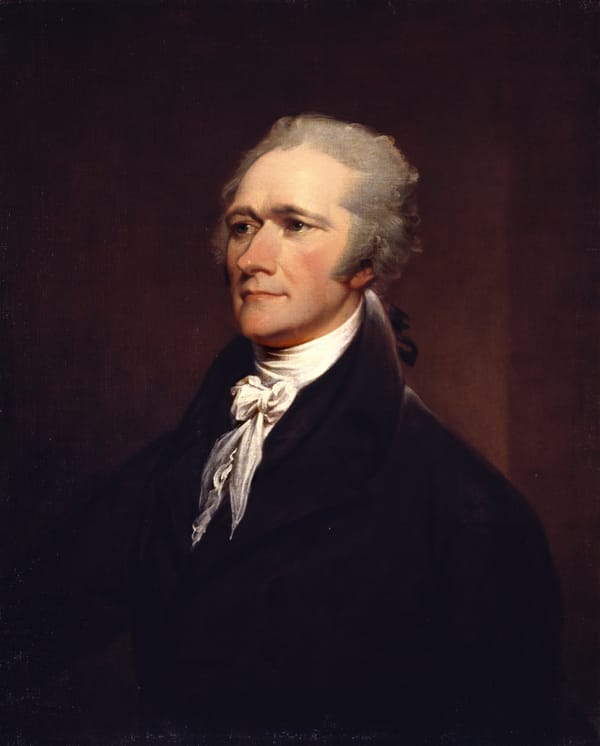Constitutional Philosophy Under Trump
Hey remember that series of mine about How (Not) To Reform the Supreme Court? Have you been waiting patiently for the next installment?
Yeah. So.
I've been spending the time since the election... well, reeling, first and foremost. But as part of the reeling, trying to figure out what it means to do constitutional philosophy under the reign of an anticonstitutional president. I've particularly had a lot of time to ponder this question the last few days, as I've been having the worst insomnia of my entire life, my brain just whirring constantly through the night. Here's at least a sketch of what I've come up with.
What doesn't feel especially meaningful to me is... trying to engage in the hurly-burly of contemporary constitutional politics. The recent controversy over Trump's rumored plan (which he may yet put into effect, who knows) to dismiss the Senate against its will so he can "recess appoint" his cabinet of scoundrels en masse is a great example. Here's, to my mind, a complete legal analysis of the plan: "The text simply doesn't say that, and to the extent that you can almost-plausibly make a sophomoric textualism case for it, you run aground on the part where the Constitution is quite plainly not meant to create a king."
That's it. I could spell out the details of each step, if you wanted, but like, there isn't really anything interesting to say? Moreover, I expect that this will be true of essentially every constitutional controversy during the second Trump administration. This same sentence, word for word, will be fit for purpose in every single case. Which means that I don't really see myself doing very much, like, current-events punditry on this site over the next few years. I'm not forswearing it, obviously, and I'm sure fate will throw me some curveballs that seem interesting to take a swing at. But it's not really what I envision as the main focus right now.
But there's something else I've wanted to do with this site since I created it. When I was first learning to play Magic: the Gathering,[1] one thing that really helped me was watching a series of instructional videos by Hall of Fame player Reid Duke. These were very much geared for beginning players, but Duke (and other MTG content creators) also make content that's pitched at a higher, more expert level. The part of me that has wanted to teach constitutional law since I was like twenty, but hasn't really had a chance to and is decreasingly sure he wants to make his future in academia, has an image of making something similar for constitutional law: a nested series of articles that can be available to people who want to learn more about the Constitution, no matter what level of familiarity they're starting from.
Over the last few weeks I've been asking myself, why bother teaching or learning about the Constitution of 1789, when it's effectively lapsed?[2] But I think there are a couple of answers. First, remembering the Constitution-as-was helps to highlight what we've lost, how far we've fallen. When I was writing about the Supreme Court's decision in Trump v. United States over the summer, I said that John Roberts's reasoning wasn't really worth engaging with on its own terms, and that instead what I wanted to do was just set out how I would've approached the case from scratch, and let the contrast speak for itself. And I think something similar can apply to the Trump era as a whole. The way to understand particular constitutional controversies isn't to engage with those controversies on their own terrain, it's to understand the Constitution of 1789 as a whole.
The other reason why studying the old Constitution is still useful, even if I'm right that the old Constitution is dead, is that one of these days, Light willing, a new constitution will be born. And I think it will be important to understand both what was noble and valuable and worth holding on to about the old Constitution and what was flawed, the contradictions that led to its collapse, what we need to do better than. Broadly speaking my thesis is that the Constitution of 1789 represented an excellent vision of constitutionalism, of representative government limited by law. But it was a deeply flawed vision of democracy, meaning popular self-rule on equal terms. Of course democracy and constitutionalism require one another: hence the collapse. But I still believe in the American idea of constitutionalism as such; other models of constitutionalism that deliberately depart from the American version are, to my mind, mostly making a mistake. Thus my image of constitutional rebirth would be a fusion of classic Madisonian constitutionalism with real, universal, egalitarian democracy. And of the two, I think constitutionalism is a lot trickier from a technical-design standpoint: egalitarian democracy is pretty inherently a simple thing. The old Constitution, then, has a lot to teach us that will still be very relevant to whatever comes next.
My hope is to get into a pretty consistent rhythm of writing content for this project. I anticipate starting from the "bottom," so to speak, and working "up." First up, then, would be "Level Zero," a very basic introduction to what the Constitution is and the central institutions of government that it creates. Kind of a high school civics vibe, more than anything, operating on the assumption that you know absolutely nothing coming in. Then "Level One" might be more the level of a college/law school intro con law class.[3] "Level Two," as I envision it, might then be a series of modules each examining particular topics in somewhat more depth, more analogous to an advanced law school seminar.[4] My current thought is that Levels One and Two might be reserved for paid subscribers only, while Level Zero would remain free, along with the actual blog part of the site. (I do want at some point to give people an actual reason to sign up for paid subscriptions that isn't pure charity, heh.)
Speaking of which... one thing I've been thinking about lately, that I may end up wanting to write about a fair amount on here, is the relationship between political philosophy and ethics. Not, as we typically use the word today, the synonym for "morals," but actual classical ethical philosophy, the study (if you can call it that) of the nature of the good life. I feel like part of what's wrong with this country right now is not even so much a moral rot (although it is that) but an ethical one, that our character, individually and as a people, has become kind of degraded, and that this is a big problem for trying to build free and just political institutions. So I may do a certain amount of general-philosophical writing that isn't strictly political, because I increasingly think that those kinds of things can't really be separated from the political stuff. I have an essay on the nature of love bouncing around in my head, for example, that I may end up trying to write up some day.[5]
So this is basically where I'm at, and what my plans are going forward. But of course I am also keen to be making things that people want to see, so if you have suggestions, either tweaks to any of the above or just separate suggestions, I would love to hear them!
I promise this is going somewhere law-related! ↩︎
Lots of people on Bluesky have taken issue with my assertion that Trump's election has put the Constitution into abeyance. For present purposes, however, I am going to ignore those people. ↩︎
They're actually not as different as you might think. The way I've basically heard it explained is that one semester of a college intro class should be equivalent to about half of one semester of the law school intro class, often covering either "government powers" or "individual rights," whereas the law school version will cover both. But for our purposes that doesn't really matter: Level One would cover the whole thing, and readers could go through it at their own pace. ↩︎
I'm not sure if there would then be a level three, haha. That might start reaching a level of depth and mastery that I myself don't really have, since I'm a constitutional generalist rather than a specific expert in particular subfields. ↩︎
Because I am immensely nerdy, my conceit is to break down the nature of love using the five colors of "mana" from Magic: the Gathering. They're a surprisingly profound philosophical concept! ↩︎

